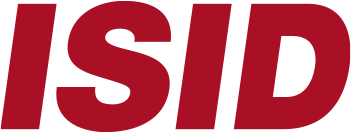The healthcare sector is undergoing a transformative shift, and one of the most significant drivers of this change is the growing use of medical video platforms. These platforms are reshaping how healthcare professionals learn, train, and access expert knowledge. With the ever-evolving nature of medical science, continuous education is vital for doctors, surgeons, nurses, and other medical staff. The traditional methods of training through textbooks, lectures, and static diagrams are no longer sufficient to keep up with the demands of modern medicine. Medical video platforms are filling this gap by offering dynamic, interactive, and accessible resources that revolutionize healthcare education and training.
Interactive Learning: A New Dimension to Medical Training
One of the most compelling aspects of medical video platforms is the ability to foster interactive learning. Unlike traditional learning methods, where students are passive recipients of information, video platforms encourage engagement and active participation. Whether it’s watching a live surgery, participating in a virtual training session, or interacting with 3D anatomical models, these platforms offer an immersive experience that significantly enhances the retention and application of knowledge.
For example, platforms like VideoMed allow healthcare professionals to not only view surgeries and medical procedures in real time but also to revisit key moments, slow down certain steps, and interact with the content. This provides medical learners with a much deeper understanding of complex procedures.

Convenience: Learning Anytime, Anywhere
The accessibility of medical video platforms is one of their most significant advantages. Gone are the days when healthcare professionals had to attend scheduled in-person training sessions or conferences to stay up-to-date on medical advancements. With the rise of medical video platforms, they can now access high-quality educational content from anywhere in the world, at any time.
For busy healthcare professionals, this flexibility is invaluable. They can now incorporate training into their schedules without the need to travel or take time off work. Whether it’s during a break or after work hours, they can access video content on their smartphones, tablets, or computers. This ensures that even the most time-constrained professionals can continue their education and improve their skills.
Accessibility to Expert Knowledge: Breaking Geographical Barriers
Medical video platforms are also democratizing access to expert knowledge. In the past, only those who could attend prestigious conferences or training programs had the privilege of learning from top-tier experts. Now, these platforms bring the world’s leading medical minds to the fingertips of healthcare professionals everywhere.
For instance, a surgeon in a rural hospital can access the same high-level training as someone in a major metropolitan medical center. Platforms like Medscape and The New England Journal of Medicine (NEJM) Video Series provide a treasure trove of lectures, live surgeries, and tutorials from top specialists worldwide. The ability to learn from the best, regardless of location, is revolutionizing how healthcare professionals train and develop their skills.

Empowering Medical Teams with Collaboration
Beyond just education, video platforms also enable collaboration and consultation. When medical professionals in a hospital face challenging cases, video platforms like VideoMed allow them to consult with experts, ensuring that they have the best possible information before making critical decisions. This collaboration fosters a solid network of healthcare professionals, breaking down silos and encouraging knowledge-sharing.
How VideoMed is Shaping the Future of Medical Learning
VideoMed is at the forefront of this transformation. As a medical video content management platform, VideoMed enables hospitals to centralize all their video content—from surgery recordings to diagnostic imaging—into one accessible platform. With seamless integration into Hospital Information Systems (HIS), healthcare professionals can access any video footage they need to support ongoing learning and review.
The platform supports the use of interactive learning techniques and offers features like AI-powered video analysis to enhance diagnostic and procedural learning. VideoMed’s ability to store and analyze videos in multiple formats ensures that hospitals can build a vast library of medical knowledge, accessible by staff anytime, anywhere.
Conclusion: A New Era for Medical Learning
Medical video platforms are ushering in a new era for healthcare training and education. They provide an interactive, convenient, and accessible way for professionals to continuously improve their skills and knowledge. As healthcare continues to evolve, platforms like VideoMed are proving indispensable in the quest for better training, real-time collaboration, and ultimately, improved patient outcomes. The future of medical learning is here, and it’s powered by video.
